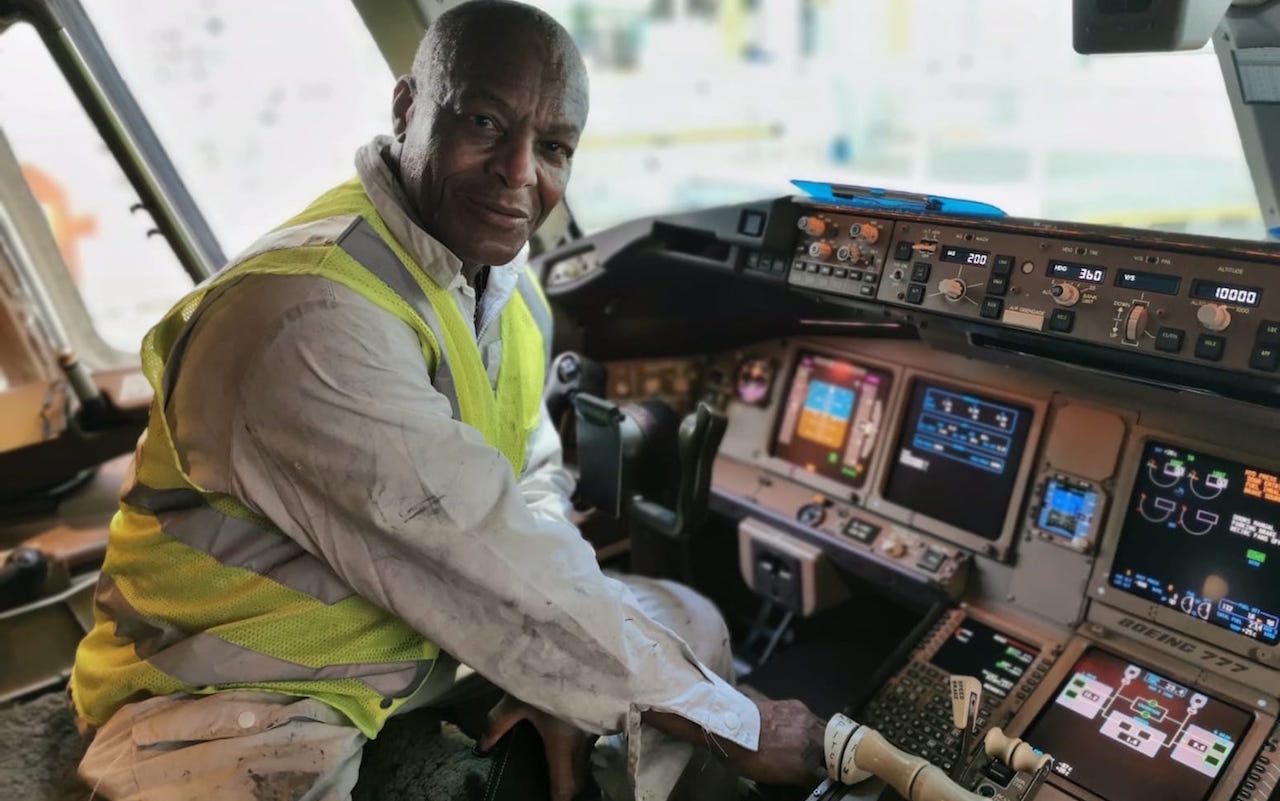by Sandra Downes in London
The day before Ian Atkins and his brother were due to leave Barbados and head to England to live, he spent the entire day fishing. That was because he had absolutely no desire to leave the island but at 12 years old, “You didn’t have a choice. You did what your parents said.” His parents had migrated a decade earlier, and he had no recollection of them. “All I remember is arriving at Heathrow Airport and a man telling me I am your father and this is your mother. Call me daddy, call her mummy.”
Although his aunt, grandmother and next-door neighbour had all come on that same flight, it did little to comfort the Christ Church lad who was leaving Walls Tenantry (now Inch Marlow), his friends and Foundation School behind.
Secondary school was no easier. “I didn’t like it, because what they were teaching me in Secondary School I had already forgotten,” he stressed. “Subjects I had done at Foundation were not being taught there. I was learning Latin, and we had already dissected frogs in Biology. They did neither of those subjects. I remember a teacher asked me in French lessons if I could count in French. I told her yes and when I got to either 70 or 80, she told me to stop, because we haven’t reached there yet.” Atkins firmly believes that teachers back then “had very little interest in teaching black children, anyway.”
“A private school probably would have been much better for me but at the time, my parents couldn’t afford it,” he said, “so I eventually dropped back to their level.”
The eldest of seven children, Atkins recounted other challenges he faced as a black person in Britain in the 1960s. He played football in his teens and made a few friends at the club. They won the league championship that year and on the night of the Presentation of Awards Dinner and Dance, when he and his friends arrived at the venue only the white boys were let in. One of them queried it and was told that blacks weren’t allowed to enter a Working Mens’ Club. Not wanting his friends to get into trouble on his behalf “because I knew what they were capable of,” Atkins wished them an enjoyable night and he returned home.
The incident didn’t diminish his love for football; he continued playing, advanced to a semi-professional level and with a few others, began coaching young black boys at Kensal Green Youth Club on evenings. “Parents sometimes would leave their sons there, go out and come back and pick them up.” He ran another Youth club called Fireflies, as well.
Atkins found social life “tough in Willesden in the 60s, mainly because of the skin heads. They would spit at you, or send a little boy to call you a black whatever; then when you go after the boy they would be close by waiting to attack. If you saw a group of them it was best to cross the road. Eventually they left us alone because the black guys started fighting back.”
By then Atkins was attending evening classes, eventually gaining City & Guilds Certificates and a Higher National Certificate in Engineering. He also completed a five-year indentured apprenticeship and received the award for top apprentice in the South of England. Even armed with those qualifications, finding employment proved difficult.
Prior to starting his 41-year career with British Airways, he recalled going to many interviews and finding it hard to even get past the secretary. “When they looked up and saw that you were black, they wouldn’t talk to you or even offer you a glass of water; and sometimes you were there an hour and a half later, waiting to be interviewed.”
He landed his first job at Brownson’s Service Equipment Limited, but a foreman there “thought I wanted his job”. So after a few years, he applied to British Airways. Beginning as a sheet metal worker, his work involved bending, forming and welding steel. As the lone black in that section he did his best, thinking “if I did well they would employ another black person.” He later became the first black supervisor at British Airways, before moving on to Quality Engineer and Project Manager positions.
“I’m not saying that B.A. is a racist organisation but any organisation of that size will have some racist staff.” Whenever he faced racism on the job, Atkins said he was “quick to tell them” and remind them, at that time, of the Commission For Racial Equality.
In 1993, he co-founded the Plane Saver Credit Union which he currently chairs. He served as a shop steward and is the Health & Safety Lead at British Airways. He also sits on several Boards and committees, including the Barbados Cultural Organisation. Over the years he has taught himself Japanese, Portuguese and Spanish. With three daughters from previous relationships, he and Barbara have been married for 30 years and have fostered several children for the past twenty-five.
Now 66, the cricket lover works eight days a month and visits Barbados at least twice a year, with plans of increasing that to three months per year in the near future. After residing in England for over five decades, Ian Atkins can still say, “If I had a choice, I wouldn’t have come. England is where I live, but home will always be Barbados.”




